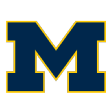Well, let's try this again.
The Sweet 16 presents another opportunity to take a second look at the field.
Here's the thing. We put a strong emphasis on the way squads played in the first weekend of the NCAA tournament as we reseeded the Sweet 16. But we also considered a team's original seed -- or the original seed we believed a squad deserved -- and whether they supported that position with their performances.
Here's our version of a reseeded Sweet 16:

1. Kansas Jayhawks (Reseed: No. 1 overall, previous seed: 1)
The most important question in the NCAA tournament right now, it appears, is this: Does any team have an answer for Josh Jackson? Through two offensive explosions -- a 38-point win over UC Davis and a 20-point win over Michigan State -- he's averaging 20 points. He's 14-for-22 inside the arc and 3-for-6 from the 3-point line. Add three steals and three blocks and you're looking at a young man who continues to boost his NBA draft stock and make Kansas look like a team that's capable of running through the field to the podium in Glendale, Arizona. We don't have a great team in this version of the NCAA tournament. But Jackson's evolution has made coach Bill Self's program the scariest squad in the Sweet 16.

2. North Carolina Tar Heels (Reseed: 1, previous seed: 1)
Nothing to see here. The Tar Heels cruised by 16-seed Texas Southern with a 103-64 victory on Friday and then they took a 30-13 lead over Arkansas, an 8-seed, on Sunday. Everyone go home and get ready for the trip to Memphis. ... Wait a minute! They're down five points with 3 minutes, 31 seconds to play?! How?!? Listen, UNC deserved consideration for the top overall seed when the brackets were announced. But after watching Virginia, Louisville, Florida State, Duke and Notre Dame miss the second weekend, remembering how many times North Carolina collapsed in losses outside Chapel Hill and watching that same team fumble through a late rally by an SEC squad that defeated one top-30 opponent on KenPom.com (South Carolina), what makes anyone think the Tar Heels deserve a seed higher than the team ranked above them on this list?

3. Wisconsin Badgers (Reseed: 1, previous seed: 8)
This is how a selection committee destroys brackets and divests its own tournament prior to the start of the second weekend. On Feb. 9, Wisconsin enjoyed a 10-1 record in Big Ten play. The Badgers lost five of their next six games only to recover from the tumble with a run to the Big Ten tournament title game and now, the Sweet 16. And they didn't squeeze by Virginia Tech and Villanova, the top overall seed. Against the Hokies, Wisconsin accrued a wild 1.31 points per possession. When they upset Villanova, the reigning champs, the Badgers finished the game on a 15-5 run and connected on 53 percent of their shots. The committee can't give Wisconsin an 8-seed and then give Minnesota, the team that suffered five losses in a row in one stretch and lost to Wisconsin twice, a 5-seed. That's fine. We'll elevate the Badgers to the proper position after a fabulous weekend.

4. Gonzaga Bulldogs (Reseed: 1, previous seed: 1)
The Bulldogs advanced to the Sweet 16 via underwhelming wins over South Dakota State and Northwestern. Yes, coach Mark Few's program enjoyed a special regular season. But I'm still stuck on the controversy from the Northwestern win on Saturday night. We don't know if the botched no-call on Zach Collins' blatant goaltending and the subsequent technical against Northwestern coach Chris Collins shifted the final result. But we're also not sure how Northwestern would have persisted after launching a 20-5 run and cutting Gonzaga's lead to single digits in the last five minutes. The drama masked Gonzaga's defensive lapses in those final minutes. Against 16-seed SDSU, the Bulldogs led by only four points at halftime and made just 31 percent of its shots in the first half of a first-round win. They beat SDSU by 20 points and Northwestern by six points. The Bulldogs advanced. That's what matters. They did not move forward via their most impressive performances of the season.

5. Michigan Wolverines (Reseed: 2, previous seed: 7)
A week after Michigan's plane flew off the runway prior to a surprising Big Ten tournament championship run, the Wolverines will enter the week as a legit threat to reach the Final Four in a Midwest Region that seems perfect for a team like coach John Beilein's. The Wolverines registered 92 points against an Oklahoma State squad that ranked first in adjusted offensive efficiency entering the NCAA tournament. Then, they collected 1.18 points per possession against a Louisville defense ranked among the top-10 in adjusted defensive efficiency. Any thoughts that Michigan can excel only if it's hot from the perimeter were put to rest when it hit just six 3-pointers but finished with 40 points in the paint against a Louisville frontcourt with four players standing 6-foot-9 or taller.

6. Arizona Wildcats (Reseed: 2, previous seed: 2)
Many casual fans were introduced to Lauri Markkanen when he led Arizona with 16 points in a win over Saint Mary's, a 7-seed probably slotted too high on Selection Sunday, following a 20-point effort in a first-round effort over North Dakota. But Arizona showcased its defensive capabilities when it held the Gaels to a 1-for-10 clip on contested 3-pointers. They held the Gaels to a 0.97 points per possession overall. Plus, Markkanen led four Wildcats who reached double figures in that game. This Arizona squad weathered difficult moments against Saint Mary's, but the Wildcats won. The Pac-12 tournament champions haven't lost a game since Feb. 25. They have size with Markkanen and Dusan Ristic. They have stars like Allonzo Trier and bulldogs like Rawle Alkins and Kadeem Allen. They're capable of making a run.

7. UCLA Bruins (Reseed: 2, previous seed: 3)
Cincinnati and UCLA battled in the last game on Sunday night. That game presented a significant opportunity for both squads to prove a point. Could a defensive guru like coach Mick Cronin prepare his Cincy squad to run with a UCLA squad that has one of the most potent offensive attacks in America? And could UCLA and Lonzo Ball find a rhythm against a Bearcats team that's accustomed to exposing the flaws of its opponents? The Bruins proved they could in a win against one of the stingiest defenses in America. Ball is still -- with apologies to Frank Mason III -- the best point guard in America. And although it's still fair to question the defensive capabilities of this UCLA squad, its scoring barrages continue to overwhelm respectable opponents. And now, the Bruins will play the same Kentucky team they beat in Lexington in December.

8. Florida Gators (Reseed: 2, previous seed: 4)
The Gators skated past East Tennessee State in a 15-point win in the first round. And then, they chased history in a win over a Virginia team that never manufactured an offensive attack you could trust in 2016-17. Florida held Virginia to just 39 points in 40 minutes, the lowest tally by a major-conference team in an NCAA tournament game in 17 years, per ESPN Stats & Info research. Coach Mike White's team limped into the NCAA tournament after losing three of its previous four games, including two to Vanderbilt in a six-day stretch, and suffering through the absence of injured, shot-blocking big man John Egbunu. But in their efforts in the first and second rounds, the Gators made a case they're the strongest remaining defensive unit -- ETSU was held to 0.93 points per possession and Virginia was held to 0.65. Plus Devin Robinson, averaging 19 points per game in this tournament, seems capable of producing the offensive juice to help Florida win a pair of games in New York City this week.

9. West Virginia Mountaineers (Reseed: 3, previous seed: 4)
Before his Louisville squad lost to Michigan on Sunday, Rick Pitino said Michigan and West Virginia were the most difficult teams to prepare for because they play unique styles and present challenges often difficult to simulate in practice. And coach Bob Huggins backed that assertion with wins over Bucknell and Notre Dame. But some interesting things happened in both games. Bucknell committed turnovers on one-fifth of its possessions but still managed to outscore West Virginia 31-12 in transition. Against Notre Dame, the Mountaineers registered a 57.1 percent clip from the 3-point line after making 36.7 percent of their 3-point attempts throughout the season. Yes, Press Virginia should scare future opponents. But if Bucknell can find a way to run and keep the game close, what happens if WVU shoots closer to its season average and faces an opponent that does not crumble under the pressure?

10. Kentucky Wildcats (Reseed: 3, previous seed: 2)
The Wildcats have three players who will probably secure slots in the first round of the NBA draft this summer (De'Aaron Fox, Bam Adebayo and Malik Monk). So how did they end up in a single-digit affair with Northern Kentucky, eligible for the NCAA tournament for the first time, and locked into a one-point game in the final seconds against double-digit seed Wichita State (yes, the Shockers deserved better from the selection committee) after making just 33 percent of their shots in the first half of the win? Well, Monk is just 6-for-21 overall and 2-for-11 from the 3-point line through two rocky tourney games. The Wildcats seem more surmountable and less Kentucky-like when he's off. He may shake that funk in Memphis this week. But if he doesn't? Well, Kentucky's ride could end.

11. South Carolina Gamecocks (Reseed: 3, previous seed: 7)
After the NCAA tournament selection committee announced the 68 teams admitted to the field, Mark Hollis -- the committee chairman and Michigan State's athletic director -- said the committee had pegged Duke as a 4-seed entering the week of its ACC tournament championship run. Hollis is respected in all circles. But ... huh? Duke had to beat Louisville, North Carolina (for the second time) and Notre Dame to rise to a 2-seed, but few doubted the Blue Devils as one of the top-five teams in America entering the NCAA tournament. And ... coach Frank Martin's Gamecocks manhandled that Duke team on Sunday in Greenville, South Carolina, two days after a 20-point win over Marquette in the opening round. Yes, Marquette and Duke essentially played road games against the Gamecocks. That matters. But South Carolina put together performances to suggest it would achieve the same outcomes at an actual neutral site. Another thing: Sindarius Thornwell looks like the most complete player in America right now. South Carolina is helping to change the perception of the SEC.

12. Oregon Ducks (Reseed: 3, previous seed: 3)
If you trust the analytics in this case, the numbers will tell you Oregon should experience minimal drop-off without injured big man Chris Boucher. According to hooplens.com, the Ducks entered the NCAA tournament averaging 1.17 points per possession without Boucher in the lineup and 1.13 points per possession with him. They experienced just a .03 difference on defense when he was sidelined, too. But those numbers represent Boucher being available to coach Dana Altman along with a balanced rotation that's capable of maintaining a rhythm. Boucher enhanced Oregon's frontcourt depth. In its past three games -- a loss to Arizona in the Pac-12 tournament (1.19 PPP allowed), Iona (1.10 PPP) and Sunday's close call against Rhode Island (1.12 PPP) -- Oregon's defense deviated from the strict attack the team had enjoyed with Boucher in the lineup. This is still a good team but not the same team without Boucher.

13. Butler Bulldogs (Reseed: 4, previous seed: 4)
Chris Holtmann's squad beat Villanova, the defending national champion, twice in the regular season. A fluke? Well, the Bulldogs have looked the part of a squad that could make a run in Memphis with a pair of wins over Winthrop and Middle Tennessee State. They will make a major leap in competition when they face North Carolina in the Sweet 16, though. They played a zone, a rare situation, against Middle Tennessee State, a 12-seed, on Saturday. And it worked. They also made 50 percent of their shots in that win.

14. Xavier Musketeers (Reseed: 4, previous seed: 11)
Coach Chris Mack's squad entered the NCAA tournament with as much baggage as any squad in the field. They had lost Edmond Sumner, arguably their best player, to injury. Myles Davis left the team in January. And Mack's squad had finished 3-7 in its last 10 games entering the NCAA tournament. The secret of the latter, however, was that Mack had lost to only Big East teams that earned invites to the NCAA tournament. They weren't bad losses. And now, Trevon Bluiett does not want to go home, proved by the 50 points he has collected in two victories over higher yet erratic seeds: an 11-point win over 6-seed Maryland and a 25-point win over 3-seed Florida State.

15. Purdue Boilermakers (Reseed: 4, previous seed: 4)
Caleb Swanigan is a finalist for the Wooden Award after an impressive regular season for the Boilermakers. He finished 8-for-19 (3-for-6 from the 3-point line) with 20 points in one of the weekend's most exciting games, a thrilling win over Iowa State. But if you removed Swanigan's contributions from his team's win over the Cyclones, Purdue would have gone home. Its starting backcourt finished 5-for-17 in that game. Yes, Swanigan can carry the Boilermakers to a couple of wins in Kansas City. Against Kansas in the Sweet 16, however, they'll need a more diverse attack.

16. Baylor Bears (Reseed: 4, previous seed: 3)
After advancing in the First Four and overcoming a double-digit deficit in a win over SMU in the opening round, the USC team we'd watched throughout the season -- a squad that hadn't defeated an elite squad not named UCLA (once) or SMU (twice) -- returned. For Baylor, Johnathan Motley's 19-point effort helped. But it's hard to go all-in on a Baylor squad that beat a pair of double-digit seeds and went 5-6 in the 11 games prior to the NCAA tournament. The path here helped.
